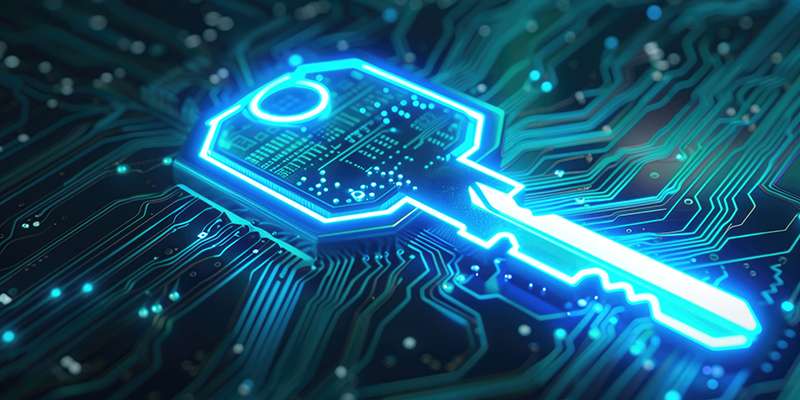BankIowa
Updated 1:06 PM CDT, Wed October 1, 2025
Published Under: Fraud Prevention & Security

Your online accounts hold the keys to your financial life, personal data, and social connections. In an era of constant cyber threats, the most effective defense is a proactive approach to password security. Treating your passwords like unique digital keys is no longer just a good idea, it’s an essential practice to protect yourself from identity theft and fraud. Read on to the learn the most secure and effective ways to manage your personal online passwords.
Use a Password Manager
A password manager is an encrypted digital vault that securely stores all your passwords. You only need to remember one strong master password to access the password manager “vault,” which will then automatically fill in login details for all your other accounts.
Password managers eliminate the need to memorize dozens of complex passwords, allowing you to use a unique, strong password for every single account without the risk of forgetting them. They can also automatically generate new, highly secure passwords, often containing a random mix of letters, numbers, and symbols that are impossible to guess.
Caution! You should not rely on your web browser as your password manager. Browsers like Microsoft and Chrome give the option to store passwords for the websites you frequently visit. Hackers can use malware to obtain passwords from those browsers, making it easier than ever to steal your personal information. Also, if your physical device is stolen, people can easily get into your accounts because the browsers automatically fill in the passwords to the sites you visit and use.
Enable Multi-factor Authentication (MFA)
Think of MFA as a second lock on your most important doors. Multi-factor Authentication requires two or more forms of verification to prove your identity, combining "something you know" (like a password) with "something you have" (a phone, email address, or security key) or "something you are" (a fingerprint). This makes it exponentially harder for hackers to access your accounts, even if your password is stolen, as they lack the second factor needed for entry. MFA can block over 99% of automated attacks!
You should enable MFA on every account that offers it, especially for email, banking, social media, and online shopping. This simple step creates a significant barrier for cybercriminals and is a critical layer of protection for your digital life.
Practice Smart Password Hygiene
While a password manager handles the heavy lifting, a few additional habits will keep your security airtight. We have an entire blog dedicated to strong password tips, but here is a summary:
- Avoid using personal information: Never use your name, birthday, pet’s name, or other easily guessable details in your passwords.
- Do not repeat passwords across multiple accounts or sites.
- Never write down your passwords.
- Change passwords after a breach. If a company you use has announced a data breach, immediately change your password for that service and any other site where you may have reused it (and you shouldn’t reuse passwords, right?).
Conclusion
As digital services and online shopping conveniences flourish, the need for reliable password security protocols increases. By adopting these practices, you can take control of your online security and significantly reduce your risk of becoming a victim of cybercrime.

Comments